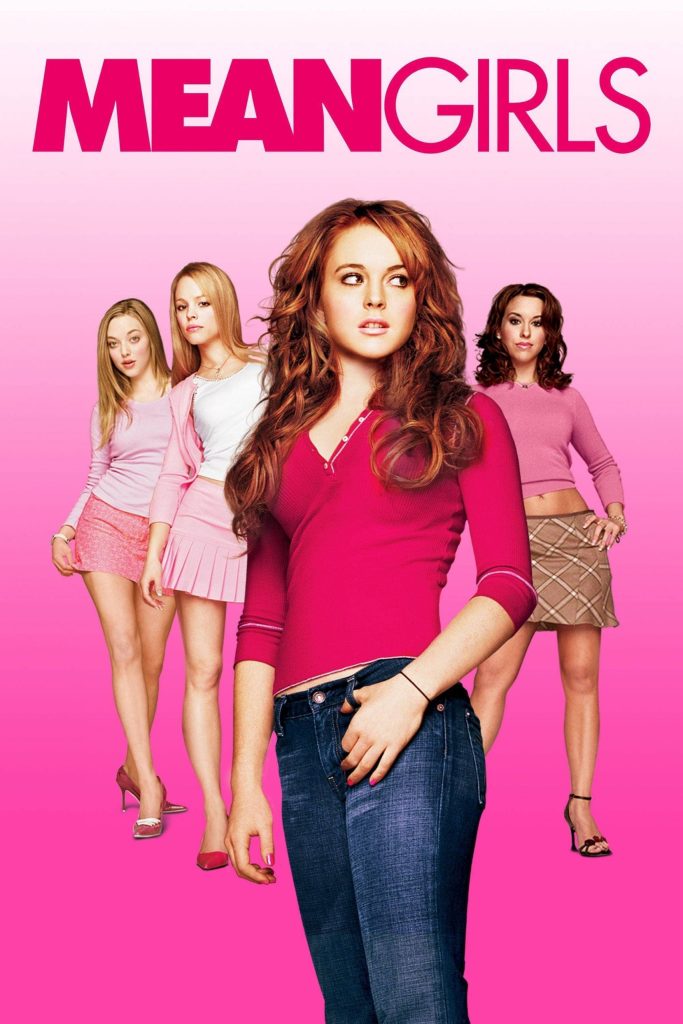
I wouldn’t say everything I know I learned from 2004’s Mean Girls, but I’d be damned if it didn’t teach me an awful lot about life and social interactions.
After horror films like Scream and Silent Hill, Mean Girls is easily the movie I’ve seen the most times in my life. Though my blog focuses on horror, I’ve always had thoughts about Mean Girls bouncing around in my mind, and with the release of the 2024 musical-turned-movie remake version, it seemed like it was finally the right time to revisit the movie.
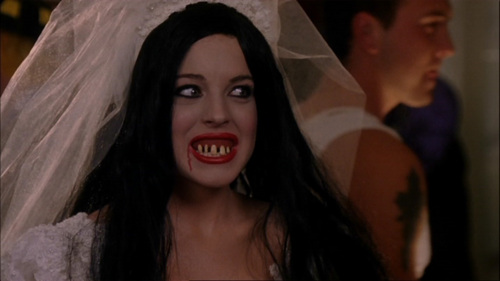
It really cannot be overstated how much of a cultural touchstone the original Mean Girls has become. I don’t think it would be an exaggeration to say I see a reference to Mean Girls in the wild at least once per week (this week there were two: a “get in loser, we’re going…” and “I’m not a regular mom, I’m a cool mom!”).
I didn’t realize till I encountered some high school girls from Evanston (who at the time in 2004 hated the movie’s depiction of them) that it was based on a 2002 nonfiction book by Rosalind Wiseman titled Queen Bees & Wannabes. When I saw it in theaters (it came out during my junior year of high school appropriately enough), I thought it was funny but never imagined how long-lasting its influence and impact would be. For better or for worse, this is the teen comedy that I think truly represents what it was like as a girl to grow up in the 2000s.
This movie is sharply written, paced to perfection, and well-acted. It introduced me to Missy Elliot’s “Pass that Dutch” which I will forever be thankful for. It is also a teen comedy of the 2000s, so there are problematic moments (hearing the R-word casually dropped a few times was jarring to say the least!), but overall it manages the impressive feat of still being laugh out loud funny two decades later and far removed from being a high schooler myself.
It would be easy to go on and on about so many aspects that make it a classic, but instead I want to focus on two things I really love about the original and two (but basically one…we’ll get there) thing I loved about the remake. Obviously, I’ll start with the original.
The Triumph of Janis Ian’s “Suck on That!”
One of my biggest pet peeves in storytelling is the worn out “Mistaken for Gay” trope that frequently crops up in TV shows and movies. It almost always makes me roll my eyes to see a punchline that essentially consists of “Get it!? It looks like they are GAY (something implied to be bad or funny) but they aren’t gay!” (queue the laugh track that goes together well with people whose sense of humor doesn’t advance beyond the early 2000s).
I bring this up to highlight the fact that even two decades later, Mean Girls has one of the only examples of “Mistaken for Gay” that completely works with a payoff that manages to avoid being homophobic. Janis Ian is presented as an outsider art student who along with the “Too Gay to Function” Damien, befriends Cady and proceeds to use her in a proxy war with the iconic Queen Bee herself Regina George.
Early into her interactions with “The Plastics”, Cady sees that the Burn Book simply describes Janis as “dyke” and is clearly taken aback. Most of the Burn Book’s insults are mean observations or hearsay, but doesn’t include actual slurs. Later, Regina reveals that the reason she doesn’t like Janis involves her perception that Janis is a lesbian:
Till the very end of the movie when Janis is seen getting together with Kevin, it is left ambiguous if Janis is actually gay. And I would be lying if I hadn’t secretly hoped she was actually gay when I first watched the movie because of how refreshing that would be to see two gay people being platonic friends in media (it is true people – we do usually hang out in packs!). But I never really minded Janis not being a lesbian because her storyline works whether she is gay or not. This comes to a head during the “apologies” scene where the girls are meant to get on a stage, admit to their wrongdoings, and complete a trust fall into the crowd.
When it is Janis’s turn, it looks like she is prepared to do something sincere (as evident from the piece of paper she is about to read off of). But one flippant comment from Regina leads her to fold up the paper and pack it away faster than you can say “actually you know what?”
She proceeds to give this monologue, culminating with a Xena: Warrior Princess warrior cry before trust falling into a group of supportive girls who reward her antics by chanting Janis’s name:
What strikes me about this monologue after all these years is yes, Janis is just as mean as Regina in a lot of ways. But whether Janis is queer or not doesn’t matter. When she concludes her speech with a feigned sheepishness starting with “I don’t know why I did it” and then twists Regina’s main taunt against her by yelling out, “it’s probably because I have a big, LESBIAN crush on you!”, it works whether she is queer or not because she has managed to strip the power away from calling her a lesbian or implying she is attracted to Regina. The fact the crowd goes with it and chants her name afterwards really hits the point home that Regina has lost her power of influence even over such a lowly outsider. Janis’s triumph works just as well whether she is queer or not.
And even though it would be great to see a queer Janis, the fact that she isn’t a lesbian better upholds one of the themes of the movie that gossip and lies poison interactions whether they are true or not. This is precisely why Cady fires off the comment, “you know what? It’s not my fault you’re like in love with me or something!” when she fights with Janis – she has both absorbed Regina’s arrogance and the homophobia of her surroundings. Just as the false accusation that Ms. Norbury is a “[drug] pusher” leads to real consequences, the accusation that Janis is a lesbian leads her to be ostracized from a swarth of her peers who are homophobic or at the very least fear their own reputations will be damaged merely by association.
“So you agree, you think you’re really pretty?“
Mean Girls may be based on teenage girls, but some of the elements of the movie ring true regardless of age. Notably for me these are each social dynamic having its own hierarchy and set of implicit rules. And more specifically the manipulation tactic of goading someone into saying something with leading statements.
The real reason I think this movie still resonates today is it captures a lot of truths of how people act. I’ve both experienced and perpetuated this behavior in nearly every group dynamic I’ve participated in whether it be a workplace, a group of friends, or a club or extracurricular activity. This movie may focus on how this behavior expresses itself in a high school dynamic, but some of those dynamics get played out in social groups regardless of age or gender.
Bringing Mean Girls from 2004 to 2024
I hate to use the phrase everyone uses to describe problematic movies from an earlier time they still love, but I will. Mean Girls is definitely a movie of its time. This is not a perfect movie, and it is depicting a very particular type of high school experience that happens to reflect a lot of my own high school experience. I don’t say this to make anyone feel bad for liking it or still laughing at a lot of the jokes, but merely to say we shouldn’t be offended if someone points out elements of this movie that didn’t age well. Comedy changes with social norms and the larger culture. That has been true throughout history. I think silent comedies and even clip shows like America’s Funniest Home Videos (is that still a thing?!) are funny, but an episode of The Three Stooges isn’t going to have me in stitches the same way The Office does. And yes that is subjective and blah blah blah, but the point is things inevitably change and so does comedy.
So the question now is what would a movie like Mean Girls look like 20 years later? As a stealth musical nonetheless because goodness knows that initial trailers did its best to cover up the musical aspect for some bizarre reason. Everyone knows people who hate musicals love when they accidently spend money to watch a musical!
What to Make of the 2024 Remake
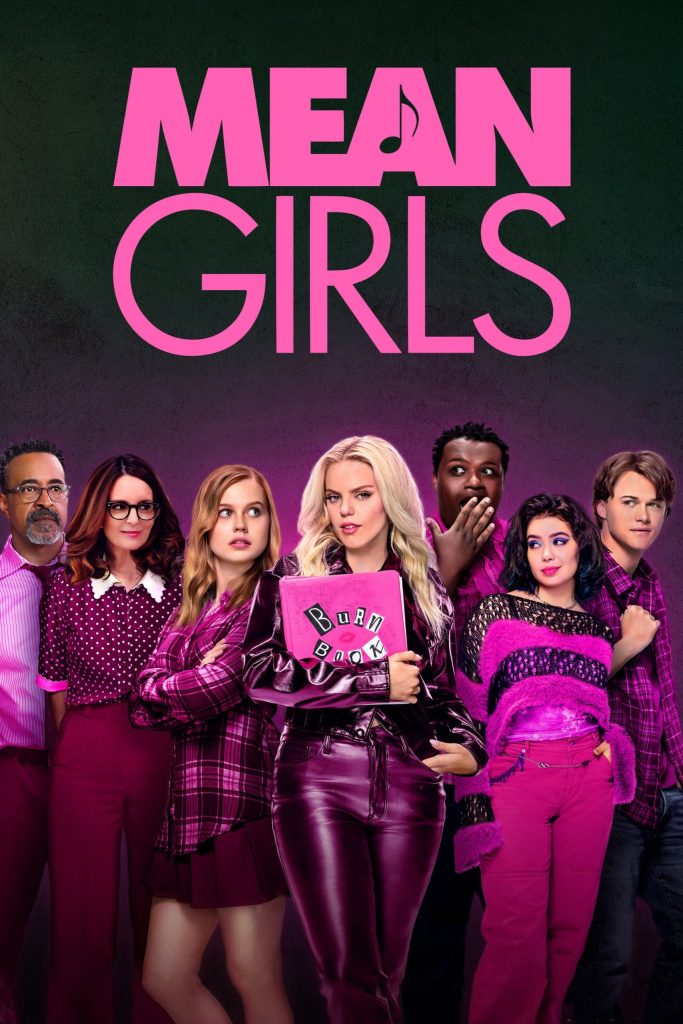
Mean Girls 2024 is based on the Broadway musical adaptation of the original movie. The small but mighty movie to musical to movie pipeline has grown increasingly strong over time while still somehow resisting the goldmine that would inevitably be Spider-Man: Turn Off the Dark.
This movie was fun because it felt like a remix of a movie I love. Some of the key one-liners are kept or twisted a bit, but the general narrative and major story beats are left intact with some key exceptions.
The music itself is okay. It struggles to be as witty and clever as Tina Fey’s writing and some songs felt really cheesy, but in some cases they really do make a lasting impression. The highlights for me were easily the ode to slutty Halloween costumes that is “Sexy” and the show-stopping “World Burn”.
The runtime is also notably bloated. It might feel that way in part because we’ve already seen this all before, but it was a little rough watching a slower and at time less clever version of the tightly constructed original. But there is one main reason I really dug this particular version of Mean Girls.
Reneé Rapp as Regina George
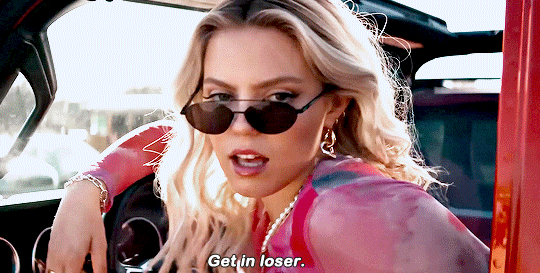
As a huge fan of The Sex Lives of College Girls, I was pretty devastated when I learned Reneé Rapp would not be returning (to play the lesbian character nonetheless!) for season three. But when I read she left in part to play Regina George, I got it. Lindsay Lohan was amazing as Cady Heron, but Regina is the iconic character everyone remembers. Rachel Adams left huge shoes to fill, and I don’t think it is an exaggeration to say casting Regina George could easily be a make or break for the Mean Girls remake’s success.
Thankfully, Reneé Rapp is incredible. Her bulletproof performance as Regina assured that even if someone doesn’t like the musical aspects or bloated runtime of this version, they would be hard-pressed to critique her performance. This is the same for other notable roles like Damien, Gretchen, Karen, and Janis – these are all tough shoes to fill and each performer really makes the role their own while representing a more ethnically diverse group of teens more reflective of the newer American generation. Unfortunately the actors for Cady and Aaron don’t quite compare to the originals, but the 2004 version was Lindsay Lohan at her peak and the way she managed to make an otherwise bland “fish out of water” character so charming was the type of magic that would be hard for anyone to replicate.
The Increasing Queerness of Mean Girls Culminating With Reneé Rapp’s “Not My Fault”
The 2004 Mean Girls may have only had one canonically queer character with Damien, but the movie is more culturally queer than Darren Criss at the peak of his Glee fame. Besides the subplot of Janis being called a lesbian and this intriguing argument that Regina is a closeted lesbian herself, three of the leading male actors came out as gay in real life. Let alone that a movie about beautiful women being catty is basically catnip for many queer male viewers.
Needless to say, the fact that the 2024 movie manages to sprinkle in some extra queerness is no small feat. Off the bat, Janis is in fact queer in this version. Unlike the original where she is explicitly called a dyke and Regina seems to genuinely think Janis is attracted to her, in the updated version Janis is labeled a “Pyro-Lez” and the implication is that Regina doesn’t really care that Janis is queer and just uses that as a way to exert power over her as needed to cement her role as the queen bee (or in this case the apex predator). The softening of the homophobic elements of the way Janis is bullied by Regina also makes Janis’s final speech (in this version it is obviously a musical number) lack the edge and vindication of the original. In general, a lot of the songs for the musical are fine, but really come across as a bit too earnest and generically uplifting rather than feeling earned. They are a bit cheesy and I can’t quite tell if they know they are cheesy.
But onto the real star of the show and one of the reasons I wanted to write about both films. Reneé Rapp has gone on record saying she intentionally played Regina George as lesbian, and that she was pulling from her own experiences as a queer woman. There is definitely some subtext between Cady and Regina, with Cady’s first encounter with Regina playing with elements of the male gaze while Cady looks to be completely hypnotized by Regina.
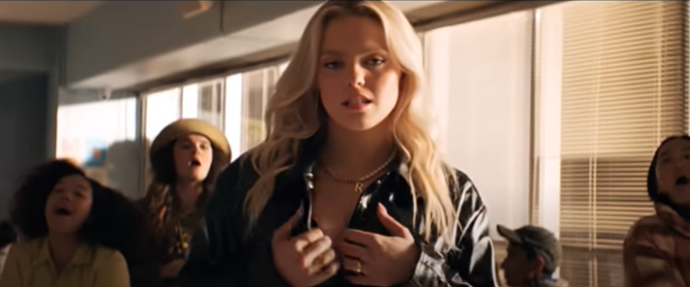
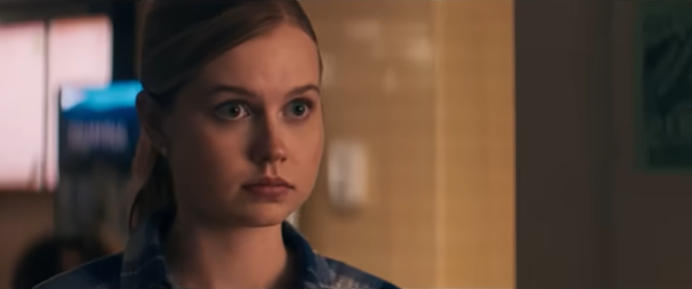
But the queerness of Mean Girls truly comes full circle with Reneé Rapp’s song “Not My Fault” which starts with the iconic soundbite of Lindsay Lohan’s Cady shouting the infamous “You know what? It’s not my fault you’re like in love with me or something!”
The fact the Rapp takes that twist of knife line where Cady yields a homophobic rumor about Janis against her friend and makes it an empowering song about being a flirtatious queer woman is the catchy pop song equivalent of Janis’s “suck on that!” from the original.
Honestly Rapp brings so much queerness both to her performance as Regina George and to Mean Girls through her personal association with the project, Janis being canonically queer in this one doesn’t even feel that exciting which is absolutely bonkers given how much it represents how far we’ve come in some regards. But having an openly queer woman play Regina George with a queer flair feels even more subversive and groundbreaking even if Regina herself is still presented canonically as heterosexual. I guess this is helping me finally understand why some of my fellow LGBTQ+ counterparts still get so excited at well-executed queer subtext!
Conclusion
I will always have a special place in my heart for the original Mean Girls (as well as a significant portion of my brain that felt it was more important to memorize most scenes from this movie than do anything else with that space and my one precious life on earth). I may or may not revisit the 2024 musical movie, but I will now forever have a special place in my heart for Reneé Rapp’s performance both in and out of the movie as the embodiment of a queer queen bee who almost always gets her way*.
*I reserve the right to revoke this post if Rapp does something insane and gets herself cancelled. But as of June 2024 she is merely a beloved queer icon! Don’t @ me!